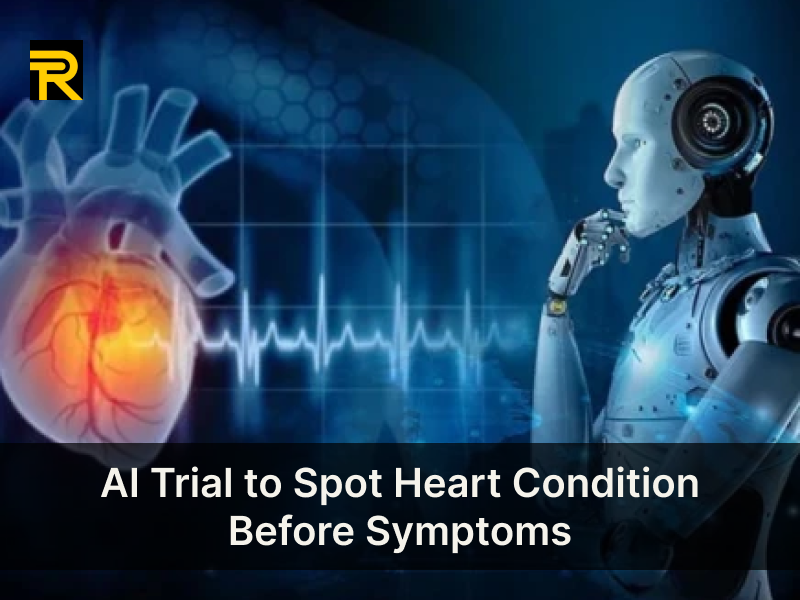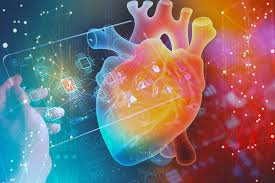
AI Trial to Spot Heart Condition Before Symptoms: A Game-Changer in Healthcare
In a groundbreaking progress for medical science, researchers are now testing artificial intelligence (AI) systems designed to detect heart conditions before symptoms appear. This innovative approach has the potential to revolutionize how cardiovascular diseases are diagnosed and managed, offering hope for earlier interventions and improved patient outcomes.
The Rising Need for Early Detection

Cardiovascular diseases remain the leading cause of death globally, responsible for nearly 18 million deaths annually. Early detection is critical for managing and reducing these conditions, but traditional diagnostic methods often rely on noticeable symptoms or invasive testing. By the time many heart conditions are diagnosed, significant damage may have already occurred.
AI technology promises to bridge this gap by analyzing subtle signs that might otherwise go unnoticed. These systems can identify patterns in medical data, such as imaging scans, blood tests, and electronic health records, to predict potential heart problems long before symptoms manifest.
How AI Works in the Trial
The trial involves advanced AI algorithms trained on vast datasets of patient health records, including historical cases of cardiovascular diseases. The technology is designed to:
-
Analyze Cardiac Imaging:
AI can assess echocardiograms, CT scans, and MRIs with exceptional precision, identifying early signs of structural abnormalities or functional impairments. -
Monitor Vital Signs:
Wearable devices equipped with AI-driven analytics track heart rate variability, blood pressure, and other vital signs in real time, flagging abnormalities that could indicate an emerging problem. -
Predict Risk Factors:
By examining lifestyle, genetic predispositions, and medical history, AI models can calculate the likelihood of developing specific heart conditions, enabling targeted preventive measures.
Case Studies and Promising Results

Early trials have shown promising results. In one study, an AI system accurately identified early-stage heart failure in patients up to six months before clinical symptoms appeared. Another trial demonstrated the AI’s ability to detect atrial fibrillation (AFib), a common but often asymptomatic condition, through patterns in ECG data with over 95% accuracy.
These results highlight the transformative potential of AI in reducing undiagnosed cases and minimizing the risk of severe complications, such as heart attacks or strokes.
Benefits Beyond Early Diagnosis

The implications of AI-powered heart monitoring extend beyond early detection. Among the key benefits are:
-
Personalized Treatment Plans: AI can help doctors tailor interventions based on the specific risk profile of each patient, improving the effectiveness of treatments.
-
Reduced Healthcare Costs: Early detection can lower the financial burden on healthcare systems by reducing hospital admissions and invasive procedures.
-
Improved Patient Engagement: Wearable technology integrated with AI fosters proactive health management, encouraging patients to take control of their cardiovascular well-being.
Challenges and Ethical Considerations

Despite its potential, the integration of AI in healthcare is not without challenges. Concerns about data privacy, algorithmic bias, and the need for attentive validation must be addressed to ensure the technology’s safe and equitable deployment. Furthermore, healthcare professionals require training to effectively interpret AI-driven insights and integrate them into clinical practice.
The Future of AI in Cardiology

The AI trial to detect heart conditions before symptoms marks a significant milestone in the quest for preventive healthcare. As technology continues to evolve, we can anticipate even more sophisticated tools capable of addressing a wide range of medical challenges.
Ultimately, this innovation underscores the unity between technology and medicine, offering a glimpse into a future where AI helps save lives by catching problems before they arise. It’s not just a jump forward for cardiology but a testament to the transformative power of AI in shaping the future of healthcare.
Follow Us
Trending News
Newsletter
Aliqu justo et labore at eirmod justo sea erat diam dolor diam vero kasd



